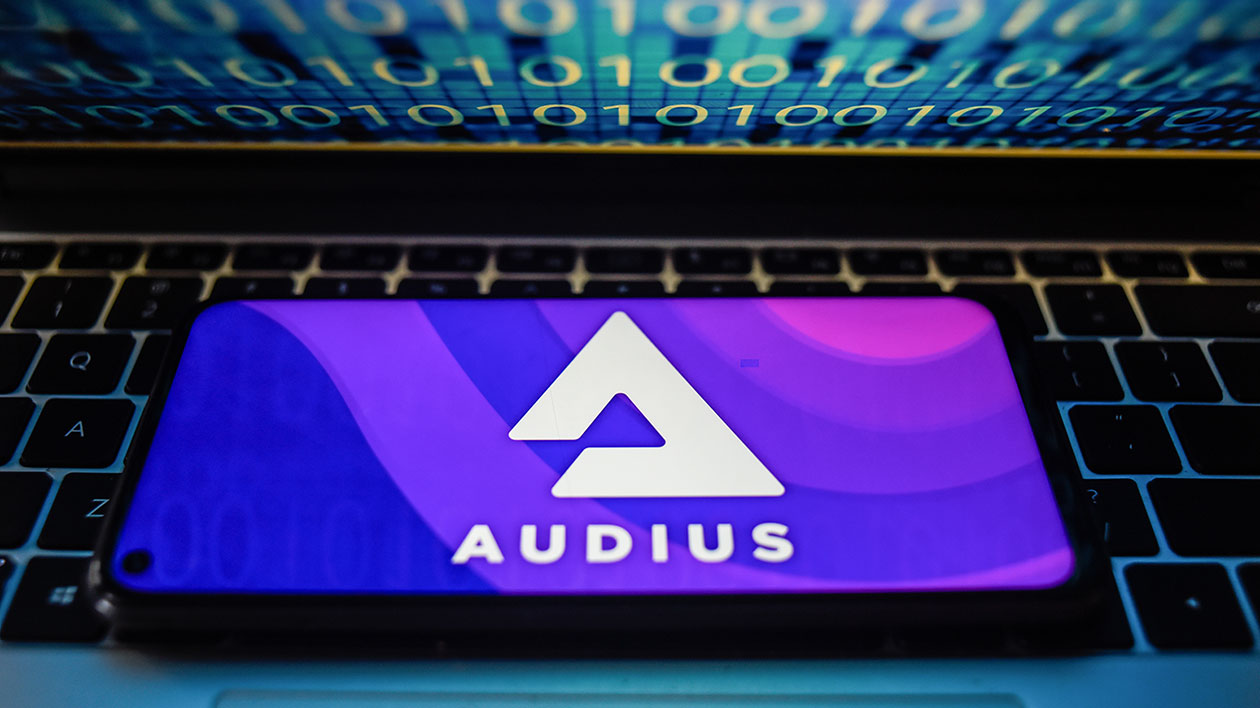Media
Audius’ Next-Generation Streaming Service Is Plagued by Piracy | Billboard

Is the future of music streaming on the blockchain? Audius, a blockchain-based streaming service, has made noise for the past year, thanks to its technology and artist investors like Katy Perry and Lil Nas X, but its openness, and the piracy that results, have raised legal questions about the four-year-old startup.
The idea behind Audius is that the company uses the blockchain — a distributed, immutable ledger technology — to create clarity and transparency for artists, and it already has 6.5 million monthly active users, who don’t pay to use it. Independent artists or labels can upload music to the Audius network, where it will be hosted by node operators, third-party providers who run servers. So far, there has been a significant amount of piracy on the platform, which has raised concerns across the industry. But since Audius itself doesn’t host any music, the issue of who would have legal responsibility isn’t completely straightforward.
Audius, founded in 2018 by CEO Roneil Rumburg, CPO Forrest Browning and Ranidu Lankage (Lankage, the former CEO left the company for personal reasons in 2019) has found a red carpet’s worth of celebrity investors, including The Chainsmokers, Mike Shinoda and Steve Aoki, as well as Perry and Lil Nas X, as well as heavyweight advisors like Deadmau5, NFT pioneer 3LAU, and RAC. (Shinoda, Perry, Aoki, Lil Nas X, and the Chainsmokers did not respond to requests to comment for this story.) Other investors include the venture capital firms Kleiner Perkins (the former employer of both Rumburg and Browning), General Catalyst, and Lightspeed Ventures, as well as Coinbase Ventures and Multicoin Capital.
“The intent was to create this commons for music distribution that was owned and operated by the community, not by a company,” Rumberg says. “We felt that a company being in that role at some stage of their growth — we see that now with Facebook, with Twitter, with all of these companies — at some stage of their growth, the interests of the company start to become misaligned with those of the user. And we thought it would be a really compelling value proposition to approach artists and say, ‘Hey, by contributing music here you actually gain control of and ownership of your distribution toolchain.’”
Anyone who wants to run a node for Audius must hold 200,000 Audius tokens — named AUDIO — which would currently trade for a little more than $400,000 in what is effectively an Audius escrow account, in case of litigation or a failure to follow the rules set out by the network, including not responding to DMCA takedown requests.
“If their node misbehaves, if it’s not, processing [takedowns] of this nature or in the many different ways that misbehavior can look, that bond can be seized by the network,” Rumburg says. “So there’s this very strong economic incentive for folks to behave in accordance with the rules.”
Despite that, Audius has an abundance of piracy on the platform. Label sources tell Billboard that a copious amount of unlicensed content can be found on the platform. It took Billboard 15 minutes to find on Audius new, unlicensed albums from artists including John Mayer, Nas, J. Cole, Meek Mill, Migos, Lil Nas X, DJ Khaled, Kanye West, and Drake.
“The crypto economy holds great promise for the music industry, but not if the model fails to license and compensate songwriters properly,” says David Israelite, president and CEO of the National Music Publishers’ Association. “It is increasingly clear that Audius is facilitating piracy to its financial benefit. The streaming service claims to be ‘built for all musicians’ however it actually enables theft from music creators. It is past time for Audius to ensure it is properly compensating songwriters. Until the platform acquires the necessary licenses it needs and takes meaningful steps to combat piracy, it will remain problematic for the industry.”
A crucial part of keeping infringing content off a streaming platform is scanning content before it goes online. YouTube’s Content ID program, for example, allows rights holders to upload an “audio fingerprint” of a track that the company can then use to pinpoint any usage in videos before they go live. Audius doesn’t have such a system, which makes having infringing content removed Whac-A-Mole for rights holders, who must send an email to Audius for every takedown request unless they are a “trusted notifier” for the company. Rumburg says this is because the Audius network is open-source.
“The nature of Audius being open-source, it just makes it a little bit more complicated to license that software so that that’s kind of what the community has been working through and trying to figure out,” Rumburg says. “There is a community-led effort right now that our team helped to kick-start to get content filtering mechanisms in place.”
When asked how being open-source prevents Audius from using third-party content filtering software, Rumburg says the delay revolves around “sales agreements” that can’t be made public. “We’ve been advised that the sales agreements for these vendors typically forbid the details of the integration from being released to the public,” Rumburg says. “Integrating with open-source software by nature makes those details public. Working around this requires a modification of the typical agreement or working with a vendor that doesn’t have that restriction.”
Pex, the digital rights management company, says despite Audius’ concerns it would have no issue working with them, or making their agreements public. “I don’t know about others, but our service is free to platforms,” says founder and CEO Rasty Turek. “Audius could easily use our services if they wanted to.”
Audius has dealt with reports of unlicensed music on its platform for years. In a lengthy piece on the startup in 2019, The Verge reported that Audius had no way to file an infringement claim online despite the platform being “full of pirated material.”
“I just don’t know that now, having had several cases where courts have interpreted what you need to do to avail yourself of safe harbor, Audius can point to the fact that they’re actually doing anything,” says Kevin Casini, a professor of entertainment law at the Quinnipiac School of Law, about the safe harbor provision of the Digital Millennium Copyright Act (DMCA) that protects service providers like Audius from monetary damages due to the infringing content uploaded by their users or third-parties. “Audius doesn’t even have a content ID, let alone a three-strike system, which seems to be the bar,” Casini continues. “If you can demonstrate that you do that, the courts seem to say, all right, that’s sufficient enough. There’s a system of some kind in place. I just don’t know that an email address that receives these notices and then gets pushed to the node operator is going to be enough to satisfy that [Audius is] trying to comply to avail themselves of the safe harbor.”
There are also questions about whether Blockchain, the quality that Audius says makes it unique, is even needed for a streaming service. Audius does not host actual music on its network on the blockchain, but instead hosts the metadata for each track on the blockchain, allowing songs (and who owns the rights to them) to be tracked in an immutable fashion. That distinction makes it easier to police the platform — if songs themselves were hosted on the blockchain, they couldn’t be removed in cases of copyright infringement — but in many eyes, it diminishes the value of having a blockchain-based streaming service.
“If they were actually using blockchain, there could be some environmental benefits or there could be some benefits to the company itself to save on streaming costs,” one high-ranking music executive tells Billboard. “If I can use the users to pay my egress costs, that’s fantastic. Those are sometimes the biggest costs streaming companies have but they’re not actually doing that. I don’t understand what you need blockchain for.”
When it comes to paying rights holders, they are the sole cog in the system that isn’t compensated for their work on Audius. The venture capital firms and investors that backed Audius early on purchased the right to buy its Audius token in exchange for capital that allowed Audius to fund itself. The node operators who must put up 200,000 Audius tokens to work with the network earn a 22% return on those tokens, which at the current conversion rate is around $100,000 a year in revenue. Creators and rightsholders whose music brings about 6 million people to Audius every month currently aren’t compensated in any way, with Rumburg describing the platform as “promotional.” Audius says it plans to launch a monetization model this year. “Part of the reason for that as well is we wanted to make sure that a lot of the folks in the broader music industry had a chance to have input on and feedback on how monetization would work in Audius,” Rumburg says.
“Audius exists to empower and enfranchise artists and rights holders, not to take away from them,” Rumberg says. “Our core mission is to give control back to these folks, which is fundamentally the opposite of infringing their rights. We philosophically are obviously staunchly opposed to any infringing activity that’s happening. And we have a multi-layer strategy to prevent that from happening on Audius and then to address it when it does happen.”
“When you look past all the window dressing and talking points, this is really just another case where first principles still apply,” Mitch Glazier, the chairman and CEO of the RIAA, said in a statement to Billboard. “All platforms should seek the proper licenses to pay creators for their work and put meaningful systems in place to prevent theft.”
Read on Billboard.
